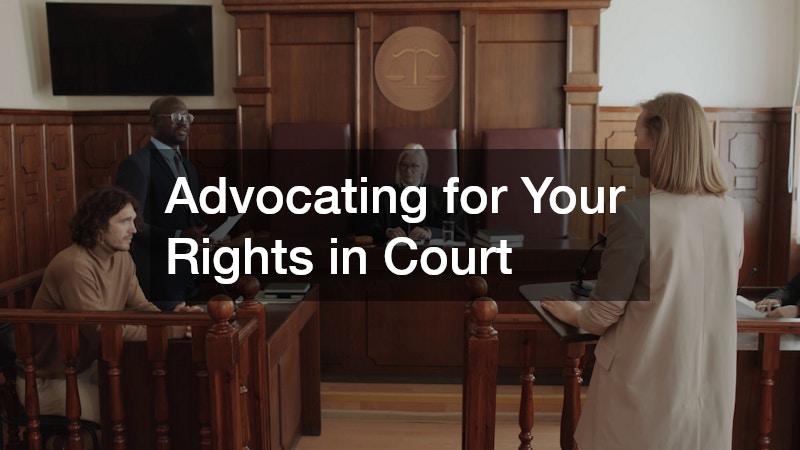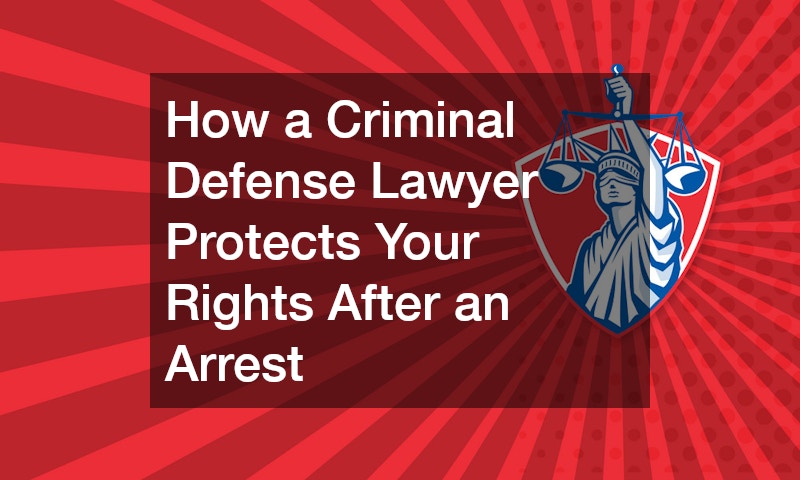
Being arrested can be a daunting and life-changing event. During such critical times, the expertise of a criminal defense lawyer becomes invaluable. Their role is not just to provide legal representation, but to ensure that the rights of the accused are upheld throughout the legal process. This article delves into the intricate ways a criminal defense lawyer protects your rights after an arrest, emphasizing the importance of legal guidance and representation in the criminal justice system.
Understanding Your Rights Upon Arrest
One of the first and most important aspects of a criminal defense lawyer’s role is to inform you of your rights upon arrest. These rights, often referred to as Miranda Rights in the United States, include the right to remain silent and the right to an attorney. A criminal defense lawyer ensures that you fully understand these rights and advises you on how best to exercise them to your advantage. This is crucial because anything said during an arrest can be used against you in court. By guiding you through this process, your lawyer helps prevent self-incrimination and protects your legal standing.
In addition to explaining your rights, a criminal defense lawyer will assess whether these rights were violated during the arrest process. If any protocols are breached, it could significantly impact your case. For instance, if evidence was obtained without proper legal procedure, a defense lawyer might challenge its admissibility in court. This scrutiny of arrest procedures serves as a first line of defense in protecting your rights. By holding law enforcement accountable, your lawyer reinforces the importance of due process within the justice system.
Building a Robust Defense Strategy
Formulating a defense strategy is a cornerstone of what a criminal defense lawyer does post-arrest. This process begins with a thorough review of the charges and evidence against you. A seasoned lawyer utilizes their knowledge and experience to identify weaknesses in the prosecution’s case. By challenging the basis of the charges and the evidence presented, they work to create reasonable doubt. This can involve everything from gathering evidence, such as witness statements, to discrediting the reliability of the prosecution’s evidence.
Moreover, a criminal defense lawyer will explore all legal avenues available to you. This includes potential plea bargains or settlement negotiations to mitigate sentencing if a trial seems unavoidable. Plea bargaining is a skillful negotiation process where a lawyer seeks to reduce the charges or sentence by working with the prosecution. It’s a complex decision-making process that requires expert guidance to ensure the best possible outcome. Achieving a favorable plea could be a realistic option that a defense lawyer navigates with skill.
In preparation for trial, a criminal defense lawyer will also manage the procedural intricacies of court proceedings. This involves filing motions, such as motions to dismiss or suppress evidence, which can be crucial in the defense strategy. Additionally, they will devise an argument strategy tailored to the unique aspects of your case. It is the lawyer’s role to present these arguments compellingly to a judge or jury. Through meticulous preparation and legal acumen, a defense lawyer strives to achieve the most favorable outcome possible.
Advocating for Your Rights in Court
When your case goes to trial, a criminal defense lawyer becomes your advocate in the courtroom. This phase is about presenting a solid and persuasive argument to safeguard your rights and freedom. The lawyer’s expertise is critical in cross-examining witnesses and presenting evidence that supports your innocence or mitigates responsibility. Cross-examination is a strategic endeavor where a lawyer challenges the credibility of the prosecution’s witnesses. Through this, they aim to highlight inconsistencies and reinforce the defense narrative.
Your defense lawyer also plays a pivotal role in jury selection, ensuring a fair and unbiased jury is chosen. The jury can greatly impact the trial’s outcome, and selecting jurors who can objectively evaluate the case is essential. A lawyer’s understanding of the legal system and psychology aids in identifying potential biases in juror candidates. Additionally, the lawyer will make opening and closing statements that succinctly present the core arguments of your defense. These statements are crafted to resonate with the jury and align with the factual narrative established by your defense strategy.
A criminal defense lawyer supports you by advising on court conduct and managing courtroom logistics. This includes informing you of appropriate dress codes and behavior during court proceedings and maintaining records of court events. This guidance is integral to maintaining decorum and ensuring that all legal protocols are adhered to. By managing these aspects, your lawyer minimizes the risk of procedural missteps that could detrimentally impact your case. Throughout the trial, their advocacy aims to establish a robust defense narrative and secure the best potential verdict.




